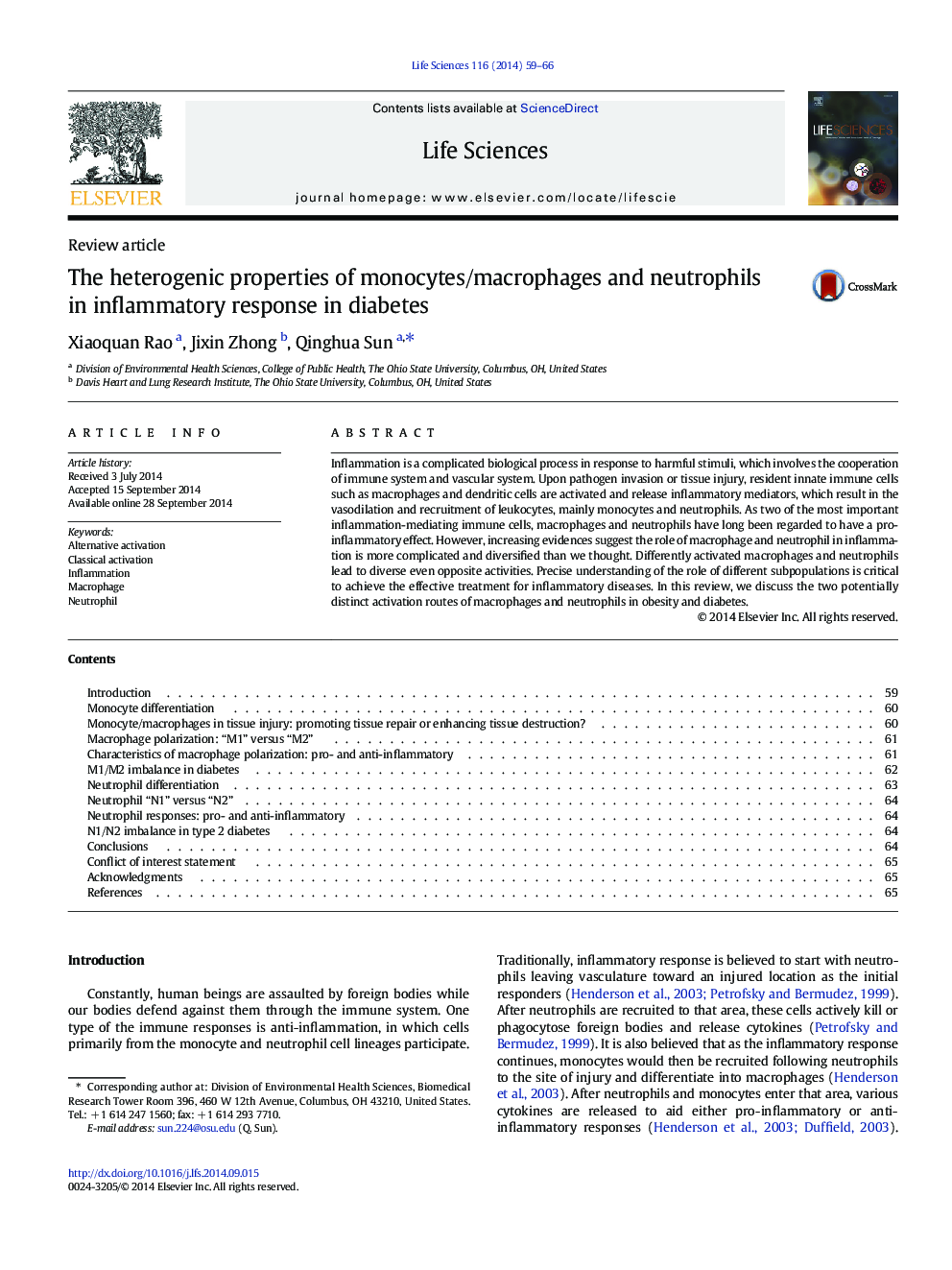| Article ID | Journal | Published Year | Pages | File Type |
|---|---|---|---|---|
| 2551091 | Life Sciences | 2014 | 8 Pages |
Inflammation is a complicated biological process in response to harmful stimuli, which involves the cooperation of immune system and vascular system. Upon pathogen invasion or tissue injury, resident innate immune cells such as macrophages and dendritic cells are activated and release inflammatory mediators, which result in the vasodilation and recruitment of leukocytes, mainly monocytes and neutrophils. As two of the most important inflammation-mediating immune cells, macrophages and neutrophils have long been regarded to have a pro-inflammatory effect. However, increasing evidences suggest the role of macrophage and neutrophil in inflammation is more complicated and diversified than we thought. Differently activated macrophages and neutrophils lead to diverse even opposite activities. Precise understanding of the role of different subpopulations is critical to achieve the effective treatment for inflammatory diseases. In this review, we discuss the two potentially distinct activation routes of macrophages and neutrophils in obesity and diabetes.
Graphical abstractFigure optionsDownload full-size imageDownload high-quality image (82 K)Download as PowerPoint slide
